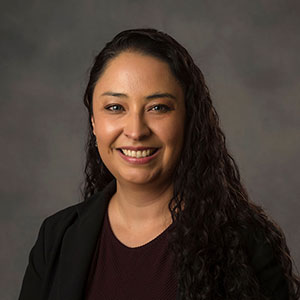How to Avoid Charity Scams

When natural disaster threaten, our thoughts turn to finding ways to help. During and after disasters, scammers seek to take advantage of this generosity. Protect yourself and help your dollars make a difference where they are needed most by watching out for these red flags and doing some homework.
Look for these red flags that may indicate a charity scam
Scammer red flags to watch out for
- Requests for only gift cards, wire transfer or cash.
- Unexpected phone calls asking for your contribution. Scammers can change caller ID to make it look like it’s a real charity or local call.
- Letters or emails thanking you for past donations to organizations you don’t recognize.
- Donation solicitors who pressure or rush you to donate quickly.
Make your donations using credit card or check. Scammers ask people to contribute cash, gift cards or by wiring money. If you’re asked to do this, don’t. A legitimate charity won’t ask for untraceable contributions – they want to track your donations as much as you do. Keep records of all your donations, especially those made by credit card, to ensure you’re not getting a recurring charge when you intended only a single donation.
Scammers sometimes trick people into making donations by sending them a phony thank you for past contributions – this is where your record-keeping comes in handy. If you receive one of these, check your records, then check the organization out. Scammers will often use names very similar to legitimate charities.
Decide now to do your homework
Knowledge is your best defense against charity fraud. Before you give to anyone, check out the organization online through GuideStar, CharityWatch or Charity Navigator. These websites offer reports and rating about how charitable organizations spend donations, how they conduct business and how to contact the charities. Determine if your donation will be tax deductible, by visiting the IRS’ Tax Exempt Organization Search web page and search for the organization.
Commit now to check out any charitable organization before contributing. This way, if you find yourself being pressured to donate, you can honestly answer “it’s my policy to never contribute without researching the organization first,” then hang up or walk away.
Your donations are needed to help disaster and hurricane victims. By following these simple tips, you can make sure your dollars truly get where you intended them to go.
More resources
Federal Trade Commission: Donating Through an Online Giving Portal https://www.consumer.ftc.gov/articles/donating-through-online-giving-portal
Federal Trade Commission: Charity Scams https://www.consumer.ftc.gov/features/feature-0011-charity-scams
Avoid Charity Scams this Holiday Season https://www.soundcu.com/smart-money/avoid-charity-scams-holiday-season/

Charlene Homan
Charlene Homan serves as the Vice President of Risk Management and Compliance at Sound Credit Union, where she leads compliance initiatives and oversees risk management strategies, including BSA compliance, fraud prevention, quality assurance, and enterprise risk management. With over 15 years in the credit union industry, Charlene has advanced from an entry-level position to her current leadership role, demonstrating comprehensive understanding of credit union landscape that supports Sound Credit Union’s values while ensuring a strong commitment to regulatory compliance and risk management.
As Sound’s appointed Compliance Officer, Charlene ensures adherence to all relevant laws and regulations while providing essential oversight on compliance issues, with the overarching goal of effectively serving members. She actively engages in professional development by attending key industry conferences and training programs. She is passionate about supporting her teams to create awareness to the membership and surrounding communities, with the intent to empower individuals to protect themselves from common scams and other fraud activities.





